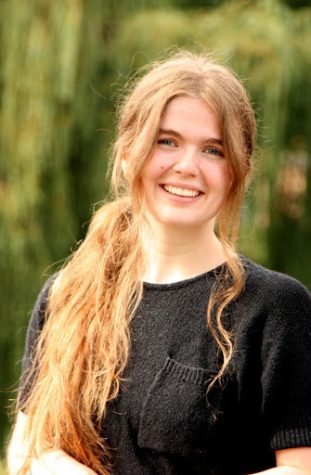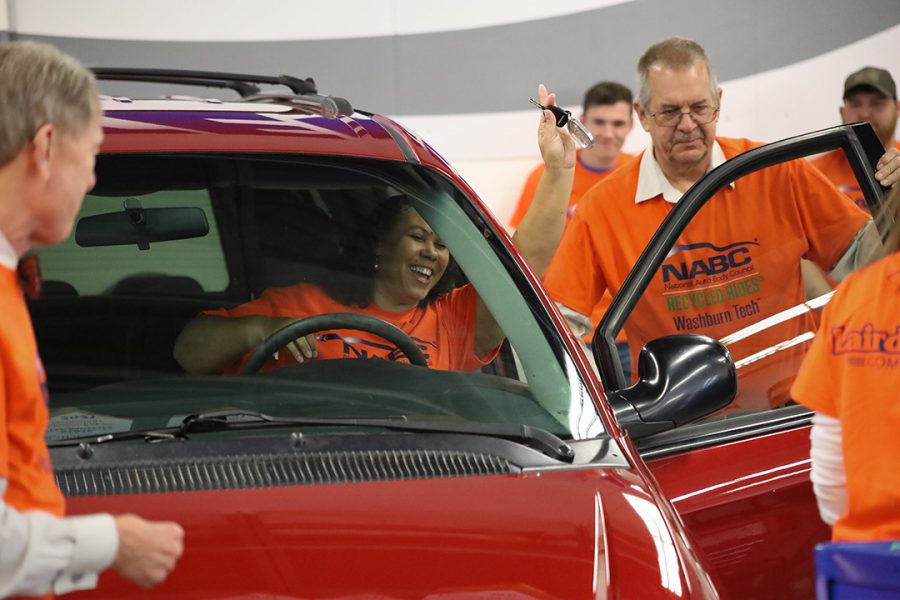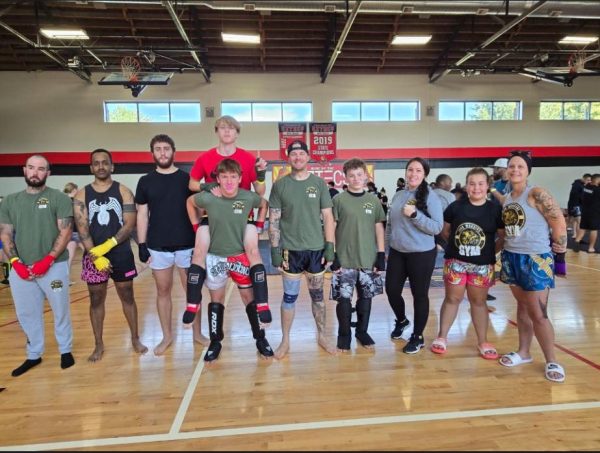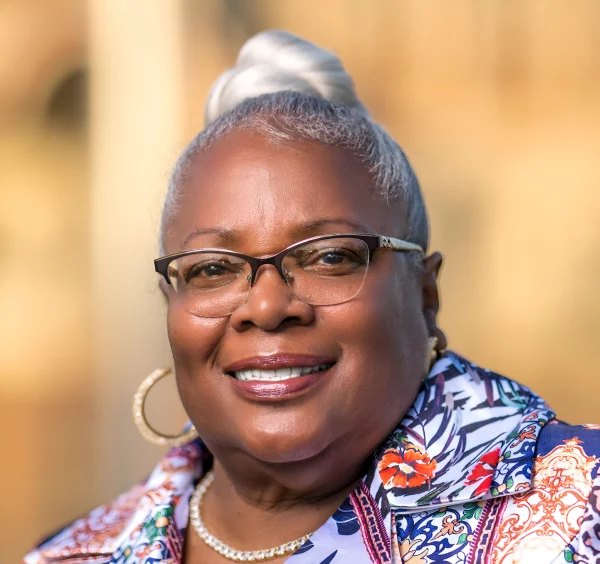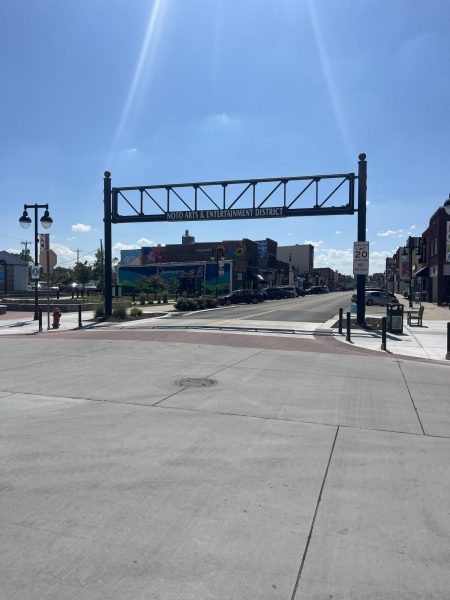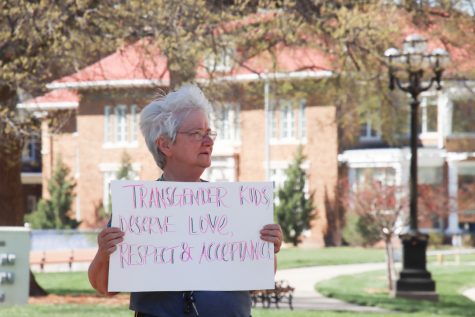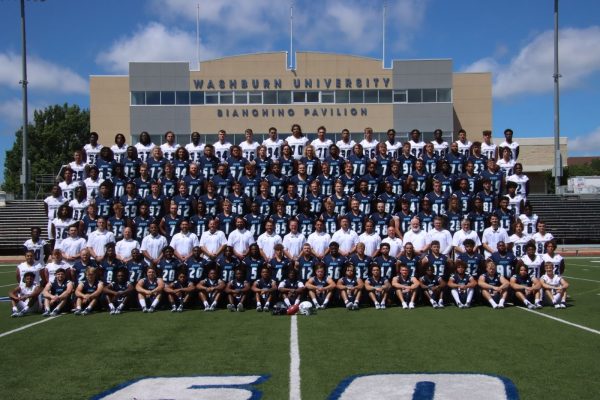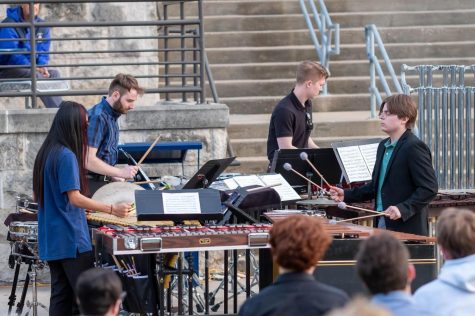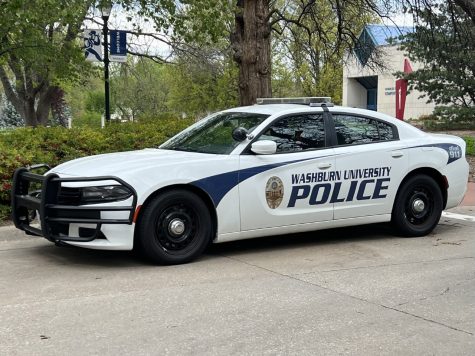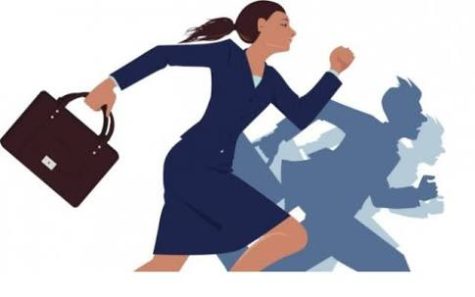Recycled Rides rolls out 33rd donation at Washburn Tech
Cheilese Thomas flashes her new key. Thomas has had her fair share of vehicle troubles prior to receiving the 2007 Chrysler Town & Country.
Washburn Institute of Technology gave away its 33rd car through the Recycled Rides program Tuesday, May 3. The technical school was the first college in the country to completely repair a car through the nationwide initiative created by the National Auto Body Council in 2007.
Since 2011, the goal of Washburn Tech’s Auto Collision and Refinishing program was to repair one car every year.
“It is my privilege to be a part of Recycled Rides. We signed on in 2011. We weren’t the first school to get involved, but we were the first school in the nation to get a car to the finish line,” said Eric Showalter, technical instructor of the auto collision program. “At that time, we thought we would do a car a year, that was our goal. So, 2011-2022, 33 cars. I think we went and overachieved.”
Applause erupted during the event as members of administration, faculty and community partners took to the podium to discuss the importance of Recycled Rides.
“What a great day it is today! We get to celebrate the 33rd car,” said Jerry Farley, president of Washburn University. “That is phenomenal. We know that these events and these programs really make a difference to people in their lives.”
This difference was felt deeply by Cheilese Thomas, a full-time working mother of four who was the chosen recipient for the newly refurbished 2007 Chrysler Town & Country minivan.
“Transportation has certainly been a challenge for Cheilese,” said Jessica Lehnherr, president and CEO at United Way of Greater Topeka. “Let’s just say she’s had a series of unfortunate events with her past vehicle. From having to completely rebuild her entire engine, then needing all new tires, then needing another expensive repair. She was faced with the unfortunate circumstance that she would not be able to afford her vehicle.”
Thomas remains grateful for being nominated and selected when she needed it most.
“Thank you for taking time out of your life and volunteering. That’s huge,” Thomas said. “That speaks from your heart and I appreciate that.”
While the community sees one or two recycled rides every semester, the process of getting them ready to roll out is not often witnessed. It begins with donations of older, broken-down cars, which have been privately donated since 2019.
“We take older cars than what they typically do in industry,” Showalter said. “We give them a little older of a car, the insurance is cheaper, the tags or taxes are a lot cheaper. The chances of them being successful with that are much higher.”
The semester-long project of repairing the vehicle is one way students can participate. Another way is through being on the selection committee to choose a recipient.
“I’ve been on the selection committee twice, last year and this semester,” said Alex Cassatt, part-time auto collision student. “It’s kind of nice because I got to go through and help decide who gets the cars or which car goes to who. I got the full spectrum, I got to choose, help prep the cars and just watch the reactions, and then get to hear them on the phones when we call them and tell them that they were selected. It was very, very nice.”
For instructors and students alike, this participation means more than just repairing an old car.
“We’re not just dirty body-guys in a shop in a back alley somewhere that don’t care,” Showalter said. “We care about your car. We care about the people that are in those cars. We care about your families. What better way to get that statement out than to be part of taking a car that is at end-of-life to some and restoring it?”
For some students, this went above and beyond practice for their craft.
“It was awesome. Honestly, I don’t know how to explain it, but it’s rewarding, very rewarding,” said Jordan Saunders, a part-time auto collision student who was also on the selection committee with Cassatt.
Showalter aims for the program to return to consistently repairing two cars every semester so it can continue its legacy of giving back to the community.
Edited by: Kyle Manthe, Maggie Cabrera
Your donation will support the student journalists of Washburn University. Your contribution will allow us to purchase equipment and cover our annual website hosting costs.
